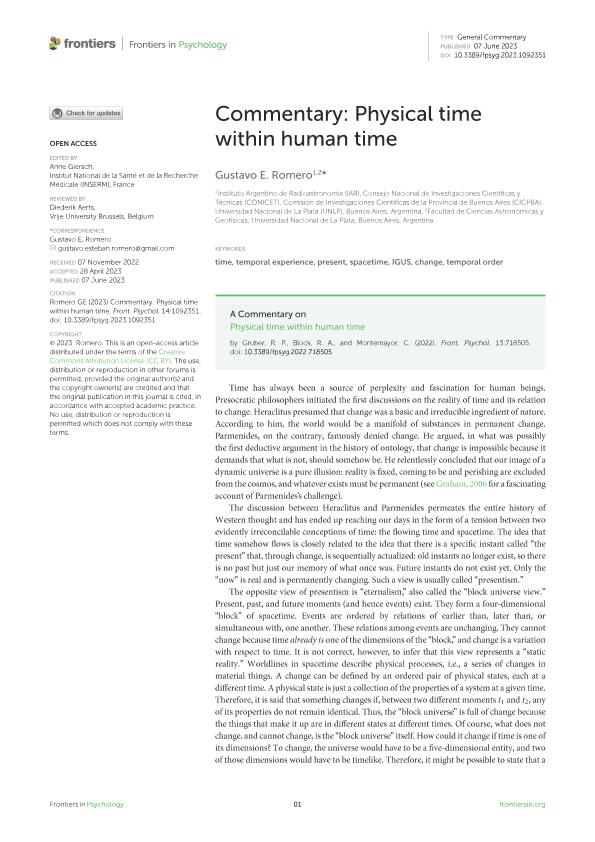Artículo
Commentary: Physical time within human time
Fecha de publicación:
06/2023
Editorial:
Institut National de la Santé et de la Recherche Médicale (INSERM)
Revista:
Frontiers in Psychology
ISSN:
1664-1078
Idioma:
Inglés
Tipo de recurso:
Artículo publicado
Clasificación temática:
Resumen
Time has always been a source of perplexity and fascination for human beings.Presocratic philosophers initiated the first discussions on the reality of time and its relationto change. Heraclitus presumed that change was a basic and irreducible ingredient of nature.According to him, the world would be a manifold of substances in permanent change.Parmenides, on the contrary, famously denied change. He argued, in what was possiblythe first deductive argument in the history of ontology, that change is impossible because itdemands that what is not, should somehow be. He relentlessly concluded that our image of adynamic universe is a pure illusion: reality is fixed, coming to be and perishing are excludedfrom the cosmos, and whatever exists must be permanent (see Graham, 2006 for a fascinatingaccount of Parmenides’s challenge).The discussion between Heraclitus and Parmenides permeates the entire history ofWestern thought and has ended up reaching our days in the form of a tension between twoevidently irreconcilable conceptions of time: the flowing time and spacetime. The idea thattime somehow flows is closely related to the idea that there is a specific instant called “thepresent” that, through change, is sequentially actualized: old instants no longer exist, so thereis no past but just our memory of what once was. Future instants do not exist yet. Only the“now” is real and is permanently changing. Such a view is usually called “presentism.”
Palabras clave:
time
,
temporal experience
,
present
,
spacetime
Archivos asociados
Licencia
Identificadores
Colecciones
Articulos(IAR)
Articulos de INST.ARG.DE RADIOASTRONOMIA (I)
Articulos de INST.ARG.DE RADIOASTRONOMIA (I)
Citación
Romero, Gustavo Esteban; Commentary: Physical time within human time; Institut National de la Santé et de la Recherche Médicale (INSERM); Frontiers in Psychology; 14; 6-2023; 1-3
Compartir
Altmétricas




